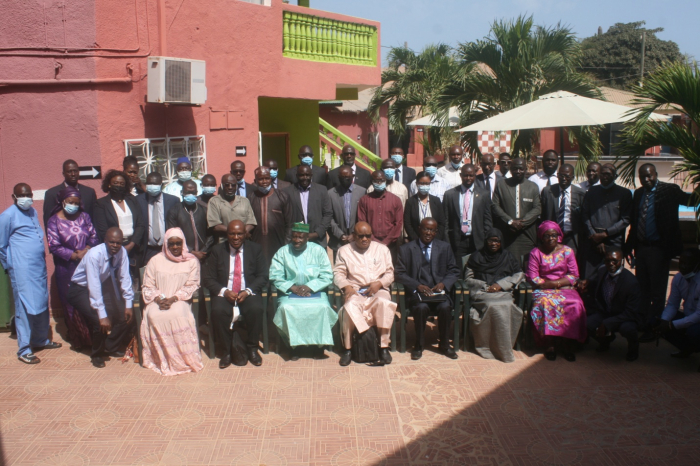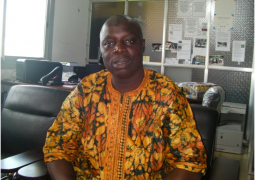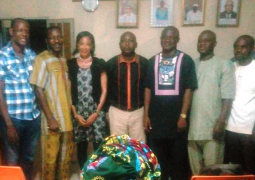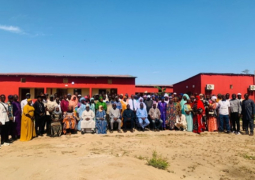
The validated GAMIRSAL business plan is expected to increase the appetite of banks and other financial institutions to lend to agriculture as the most sustainable approach to increase production and productivity of both crops and livestock and also to expand agribusiness activities.
Delivering a statement at the forum, Mr Hassan Jallow, permanent secretary at Ministry of Agriculture expressed delight at the validation of this important incentive-based risk sharing system for the agricultural lending in The Gambia.
He observed that one of the biggest challenges to development of agriculture in The Gambia as recognized by the MOA is the lack of access to finance.
“Availability of funds to finance agricultural production has been the main hindrance to the development of reliable agricultural services and mechanization; land preparation and tillage, harvesting, threshing and other post-harvest operations.” he pointed out.
PS Jallow recalled that over the years government has implemented several initiatives and interventions to increase access to finance to agriculture, which he said, include the defunct Agricultural Development Bank, The Gambia Cooperative Union, VISACAs, among others.
The Ministry of Agriculture, he added, recently through donor funded projects adopted the Matching Grant approach to stimulate private sector investments into agriculture aimed at helping Farmer Based-Organisations (FBOs) and individual Agro Enterprises to realize their productive capacities.
PS Jallow noted that the establishment of GAMIRSAL aligns with the second generation Gambia National Agriculture Investment Plan, Food and Nutrition Security (GNAIP-FNS) and the National Development Plan (2018 – 2021) are committed to modernizing agriculture to stimulate inclusive growth of the Gambian economy through employment opportunities for the teeming active and youthful population.
He thanked AfDB for its continuous support to the agriculture sector and also the Central Bank of The Gambia for all the support rendered to make the initiative a reality.
Madam Juldeh Ceesay, deputy permanent secretary at Ministry of Finance and Economic Affairs said MoFEA attaches high priority to the advancement of agriculture as it continue to be a major pillar for the development of the Gambia’s economy and a means to reduce poverty.
“Most especially in the rural areas where over 80 percent households depend on agriculture for their livelihood,” she said.
According to her agricultural sector contributes around 20 percent to the country’s GDP and generates 30 percent of its total foreign exchange earnings while the high importation of agriculture and related products poses a threat to the stability of the Dalasi.
Dr Seeku AK Jaabi, first deputy governor Central Bank of The Gambia described agriculture as an important sector in many Sub-Saharan Africa countries, adding that it contribute to 20% of Gambia Gross Domestic Products, provide employment and income for majority of the population, foreign exchange through earnings through exports.
He highlighted some of the major constrain which, he added, is attributed to lack of formal financial access along the value chain and as well the challenges which included long gestation of commodities, informality, collateral value, markets, micro-insurance to mitigate risks, experts in agricultural lending that are normally not in banks.
Dr Olusegun Ogidan, a representative NIRSAL Nigeria congratulated The Gambia and people of The Gambia for the bold step taken in initiating discussions and studies of the validated GAMIRSAL business plan.
Africa, he added, is blessed with natural agricultural opportunities - the land, water, ecology, labour and the market. But despite all these opportunities and potentials available in Africa coupled with enabling governments’ policies and environments, he said, there are still many challenges hindering agriculture development in Africa.





